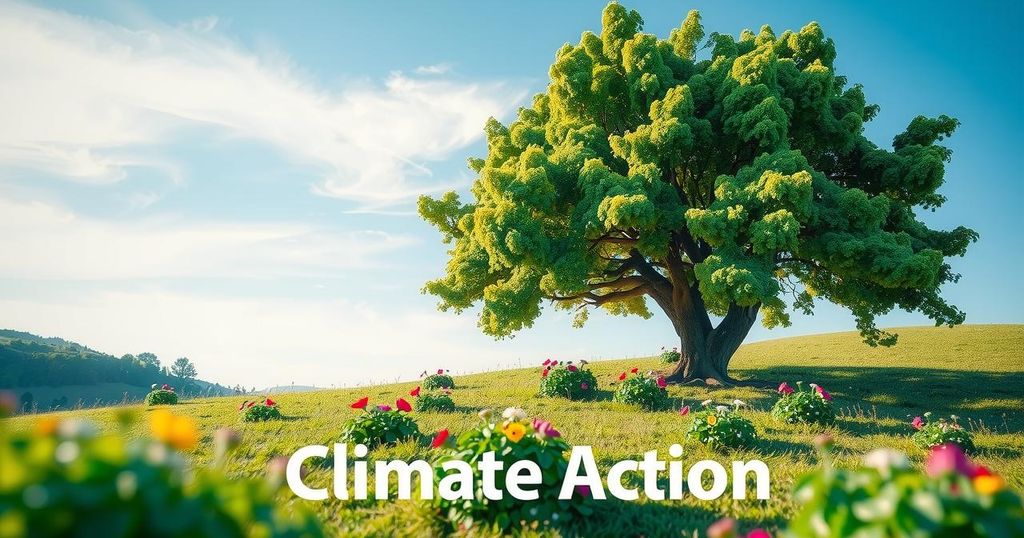In light of the U.S. government’s withdrawal from $4 billion in pledges to the Green Climate Fund (GCF), Executive Director Mafalda Duarte has urged global leaders to continue investing in climate finance for developing countries. She highlighted the interlinked nature of climate impacts, advocating for collaborative action to mitigate risks and promote resilience efforts worldwide amid uncertainties in funding support.
Following the United States’ withdrawal from $4 billion in pledges to the Green Climate Fund (GCF), Mafalda Duarte, the fund’s executive director, emphasized the need for world leaders to continue supporting climate finance for developing nations. She noted that investing in emission reduction and resilience initiatives benefits both the contributors and recipients in an interconnected global landscape. Duarte stressed that climate change must be approached proactively, as its repercussions, including conflict and migration, will affect all countries, regardless of wealth.
Duarte’s remarks came after reports indicated that President Donald Trump’s administration officially canceled its commitments, a move unprecedented among contributing nations. Past contributions by Barack Obama and Joe Biden amounted to $3 billion each, though only half was received due to congressional approval issues during Republican control. Established in 2010, the GCF has facilitated $16 billion in projects worldwide, primarily funded by Germany, the United Kingdom, and Japan, from a total of 46 donor countries, including nine developing nations.
Duarte argued that while climate challenges pose risks, investments can yield significant economic advantages and global influence. She stated, “Countries that lead in climate finance will lead the future economy.” She posited that nations investing in global climate initiatives can enhance their leverage on international issues. This reflects the sentiments expressed by UN climate chief Simon Stiell about transition opportunities in the clean energy sector amid U.S. withdrawal from climate accords.
Despite the U.S. funding cuts, the GCF spokesperson assured that current programs remain secure and fully funded. However, the GCF has expressed concern that unfulfilled pledges could limit its capacity to assist developing countries in achieving their climate goals. A project in El Salvador, supported by the GCF, illustrates the positive impact of climate resilience efforts, providing tools for communities to cope with environmental crises and prevent further hardships.
In summary, the GCF leaders are advocating for maintaining global climate finance commitments, stressing their importance to developing nations and the broader international community. With investments critical for combating climate challenges, the GCF urges world leaders to prioritize funding initiatives and explore alternative financing mechanisms to support ongoing and future projects.
The cancellation of U.S. contributions to the Green Climate Fund poses a significant challenge to global climate financing efforts aimed at supporting developing nations. Mafalda Duarte’s call to action underscores the interconnectedness of climate issues and the necessity for continued investments in emission reduction and resilience initiatives. The international community is urged to step up its support to ensure that vital climate projects can proceed in the face of funding uncertainties.
Original Source: www.climatechangenews.com






